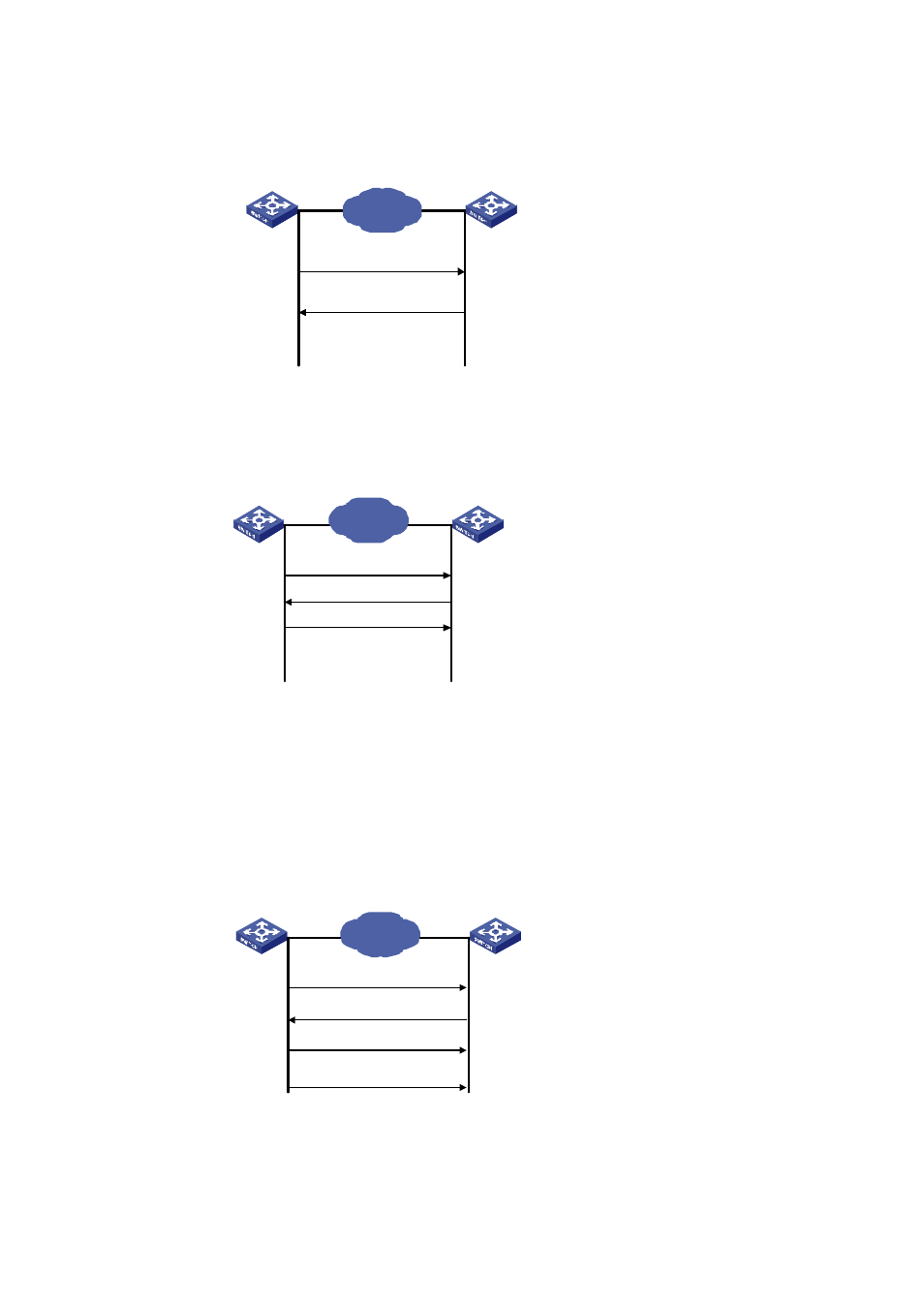H3C Technologies H3C WX3000 Series Unified Switches User Manual
Page 455

46-4
Server/client mode
Figure 46-2
Server/client mode
Server
Clock synchronization
request
Response
Network
Client
Works in server mode
automatically and sends
a response packet
Filters and selects a clock
and synchronizes the local
clock to that of the preferred
server
Symmetric peer mode
Figure 46-3
Symmetric peer mode
Passive peer
Clock synchronization
request
Synchronize
Network
Active peer
Works in passive peer
mode automatically
In peer mode, both sides
can be synchronized to
each other
Response
In the symmetric peer mode, the local device serves as the symmetric-active peer and sends clock
synchronization request first, while the remote server serves as the symmetric-passive peer
automatically.
If both of the peers have reference clocks, the one with a smaller stratum number is adopted.
Broadcast mode
Figure 46-4
Broadcast mode
Client
Broadcast clock synchronization
packets periodically
Network
Server
Initiates a client/server mode
request after receiving the
first multicast packet
Works in the server mode
automatically and sends
responses
Client/server mode
request
Response
Obtains the delay between the
client and server and works in
the multicast client mode
Receives multicast packets and
synchronizes the local clock
Broadcast clock synchronization
packets periodically
